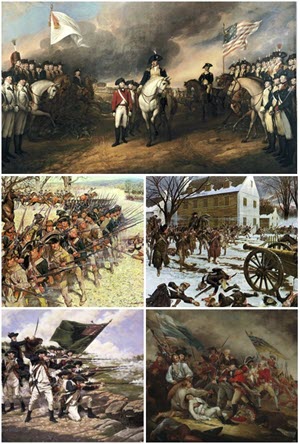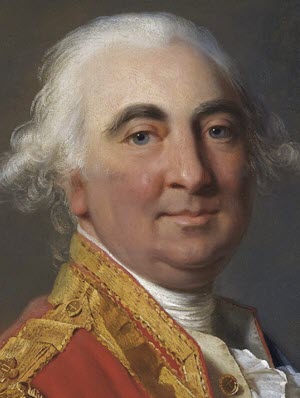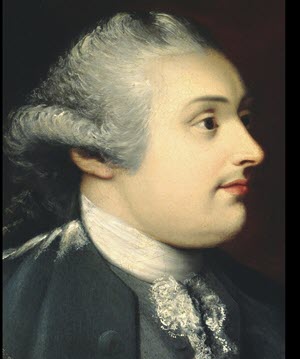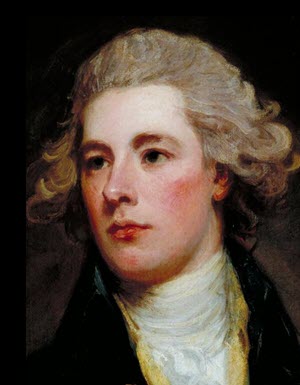| |
Date |
Event(s) |
| 1 | 1760 | - 25 Oct 1760—29 Jan 1820: King George III's reign

George III was the third British monarch of the House of Hanover, but unlike his two predecessors, he was born in Great Britain, spoke English as his first language, and never visited Hanover. His reign was marked by a series of military conflicts involving his kingdoms, much of the rest of Europe, and places farther afield. Early in his reign, Great Britain defeated France in the Seven Years' War, becoming the dominant European power in North America and India. However, many of Britain's American colonies were soon lost in the American War of Independence. Further wars against revolutionary and Napoleonic France from 1793 concluded in the defeat of Napoleon at the Battle of Waterloo in 1815.
Later in life, George III had recurrent mental illness. After a final relapse in 1810, a regency was established, and George III's eldest son, George, Prince of Wales, ruled as Prince Regent.
|
| 2 | 1775 | - 18 Apr 1775—4 Sep 1783: American Revolutionary War

The American Revolutionary War, also known as the American War of Independence, was an 18th-century war between Great Britain and its Thirteen Colonies (allied with France) which declared independence as the United States of America.
After 1765, growing philosophical and political differences strained the relationship between Great Britain and its colonies. Patriot protests against taxation without representation followed the Stamp Act and escalated into boycotts, which culminated in 1773 with the Sons of Liberty destroying a shipment of tea in Boston Harbor. Britain responded by closing Boston Harbor and passing a series of punitive measures against Massachusetts Bay Colony. Massachusetts colonists responded with the Suffolk Resolves, and they established a shadow government which wrested control of the countryside from the Crown. Twelve colonies formed a Continental Congress to coordinate their resistance, establishing committees and conventions that effectively seized power
|
| 3 | 1782 | - 4 Jul 1782—26 Mar 1783: Earl of Shelburne - 14th British Prime Minister

William Petty, 1st Marquess of Lansdowne, (2 May 1737 – 7 May 1805), known as The Earl of Shelburne between 1761 and 1784, by which title he is generally known to history, was an Irish-born British Whig statesman who was the first Home Secretary in 1782 and then Prime Minister in 1782–83 during the final months of the American War of Independence. He succeeded in securing peace with America and this feat remains his most notable legacy.
In March 1782 following the downfall of the North Government Shelburne agreed to take office under Lord Rockingham on condition that the King would recognise the United States.
|
| 4 | 1783 | - 2 Apr 1783—18 Dec 1783: Duke of Portland - 15th British Prime Minister

William Henry Cavendish Cavendish-Bentinck, 3rd Duke of Portland, (14 April 1738 – 30 October 1809) was a British Whig and Tory politician during the late Georgian era. He served twice as British prime minister, of Great Britain (1783) and then of the United Kingdom (1807–09). The twenty-four years between his two terms as Prime Minister is the longest gap between terms of office of any British prime minister.
During his tenure the Treaty of Paris was signed formally ending the American Revolutionary War. The government was brought down after losing a vote in the House of Lords on its proposed reform of the East India Company after George III had let it be known that any peer voting for this measure would be considered his personal enemy.
- 19 Dec 1783—14 Mar 1801: William Pitt the Younger - 16th British Prime Minister

William Pitt the Younger (28 May 1759 – 23 January 1806) was a prominent British Tory statesman of the late 18th and early 19th centuries. He became the youngest British prime minister in 1783 at the age of 24. He left office in 1801, but was Prime Minister again from 1804 until his death in 1806. He is known as "the Younger" to distinguish him from his father, William Pitt, 1st Earl of Chatham, called William Pitt the Elder or simply "Chatham", who had previously served as Prime Minister.
The younger Pitt's prime ministerial tenure, which came during the reign of George III, was dominated by major events in Europe, including the French Revolution and the Napoleonic Wars. Pitt, although often referred to as a Tory, or "new Tory", called himself an "independent Whig" and was generally opposed to the development of a strict partisan political system. He led Britain in the great wars against France and Napoleon. Pitt was an outstanding administrator who worked for efficiency and reform, bringing in a new generation of outstanding administrators.
|


